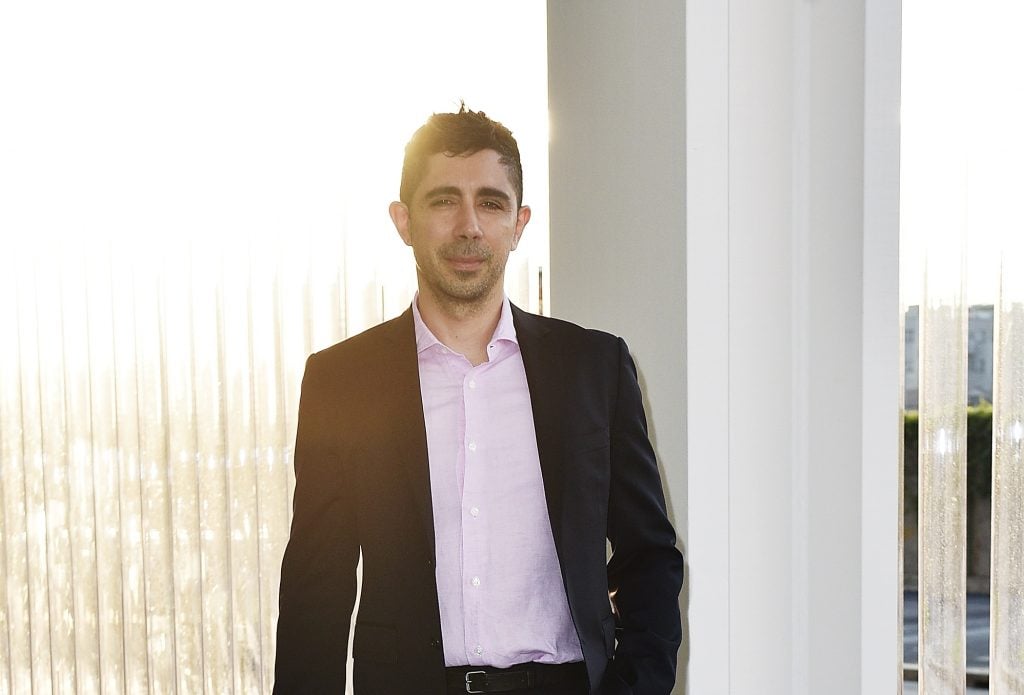Politics
The Firing of David Velasco From ‘Artforum’ Sparks a Series of Resignations and a Boycott Effort
Artists and writers have signed a petition to boycott the publication alongside others owned by Penske Media.

Artists and writers have signed a petition to boycott the publication alongside others owned by Penske Media.

Artnet News

Since the news broke that Artforum had fired its editor-in-chief David Velasco on Thursday, several of the magazine’s editors have resigned while artists and writers have signed a petition pledging to boycott the publication.
Penske Media, which owns Artforum, has not confirmed the reasons for Velasco’s termination. On Thursday, Artforum’s publishers released a statement regarding an open letter in support of Palestine that had been published on October 19, clarifying that it had originated from “outside the magazine.”
“That the letter was misinterpreted as being reflective of the magazine’s position understandably led to significant dismay among our readers and community, which we deeply regret,” Artforum‘s publishers Danielle McConnell and Kate Koza wrote. “It also put members of our team in the untenable position of being represented by a statement that was not uniformly theirs.”
Velasco said in a statement to the New York Times: “I’m disappointed that a magazine that has always stood for freedom of speech and the voices of artists has bent to outside pressure.”
Shortly after Velasco was removed, Kate Sutton, who has been an editor at Artforum since 2018 and a regular contributor since 2008, and senior editors Zack Hatfield and Chloe Wyma all stepped down. They announced their resignations on X, formerly known as Twitter. “The firing of David Velasco violates everything I had cherished about the magazine and makes my work there untenable,” wrote Wyma. Hatfield added that the termination “is unacceptable and bodes ominously for the future of the magazine.” A representative for Penske Media said it does not comment on “personnel issues,” but stated that there will be new issues of Artforum this November and December.
Since Velasco’s dismissal, another petition has been circulated among prominent artists, art writers, and other art professionals responding to “alleged interference with the editorial independence of Artforum.” Its signatories have pledged to withdraw their future participation in “any editorial or commercial activities” of the publication, including by unsubscribing, refusing to write or grant publication rights, refusing to contribute images or grant image rights, refusing to purchase ads, grant interviews, among other non-participatory actions. The boycott extends to ARTnews and Art in America, part of Art Media, LLC, which is owned by Penske Media.
The petition referred to “a multi-year period of corporate consolidation that has impacted the editorial viability of historically significant American art magazines.” Among the 291 signatures listed so far are artists Nan Goldin and Hannah Black, and many writers, including past contributors Brian Droitcour, Tobi Haslett, and Emily LaBarge, who has also officially resigned as a freelance editor for Artforum.
The pro-Palestine letter published by Artforum on October 19 was signed by Velasco, Wyma, and Hatfield alongside thousands of others. It called for “an end to the killing and harming of all civilians, an immediate ceasefire, the passage of humanitarian aid into Gaza, and the end of the complicity of our governing bodies in grave human rights violations and war crimes.”
It received backlash among some people in the art world for not acknowledging or condemning the attacks by Hamas against Israelis on October 7, and several signatories, including prominent artists Peter Doig, Joan Jonas, Katharina Grosse, and Tomás Saraceno, subsequently withdrew their support. According to a report in the New York Times, some artists were urged to remove their signatures by gallerists and art collectors.